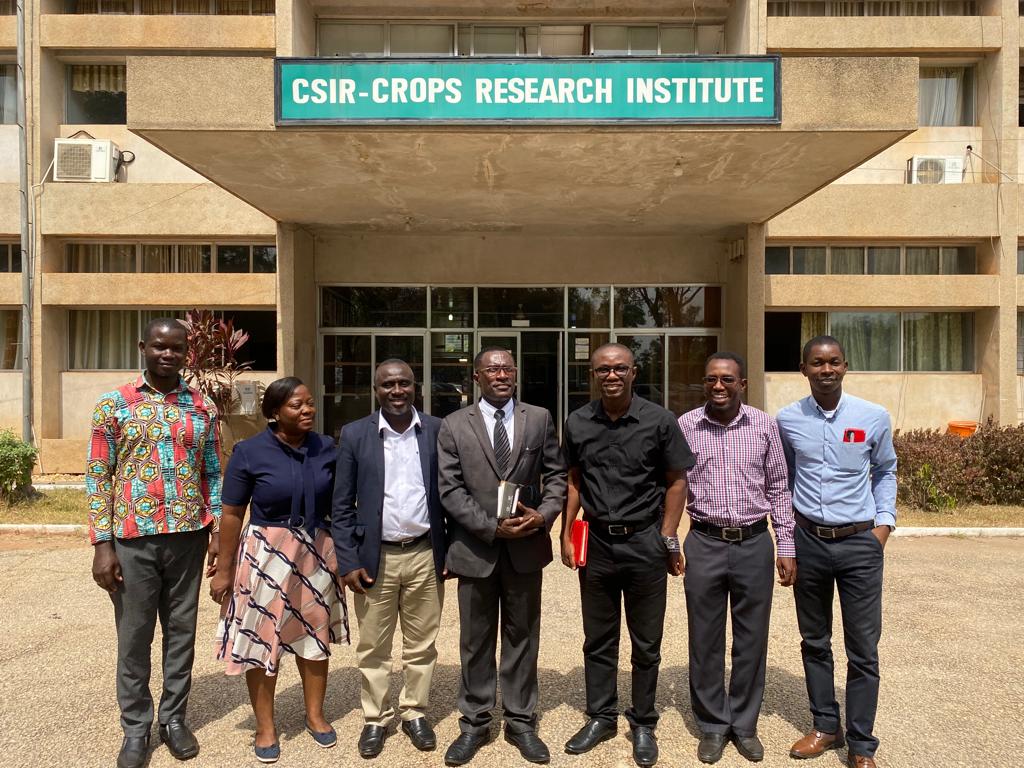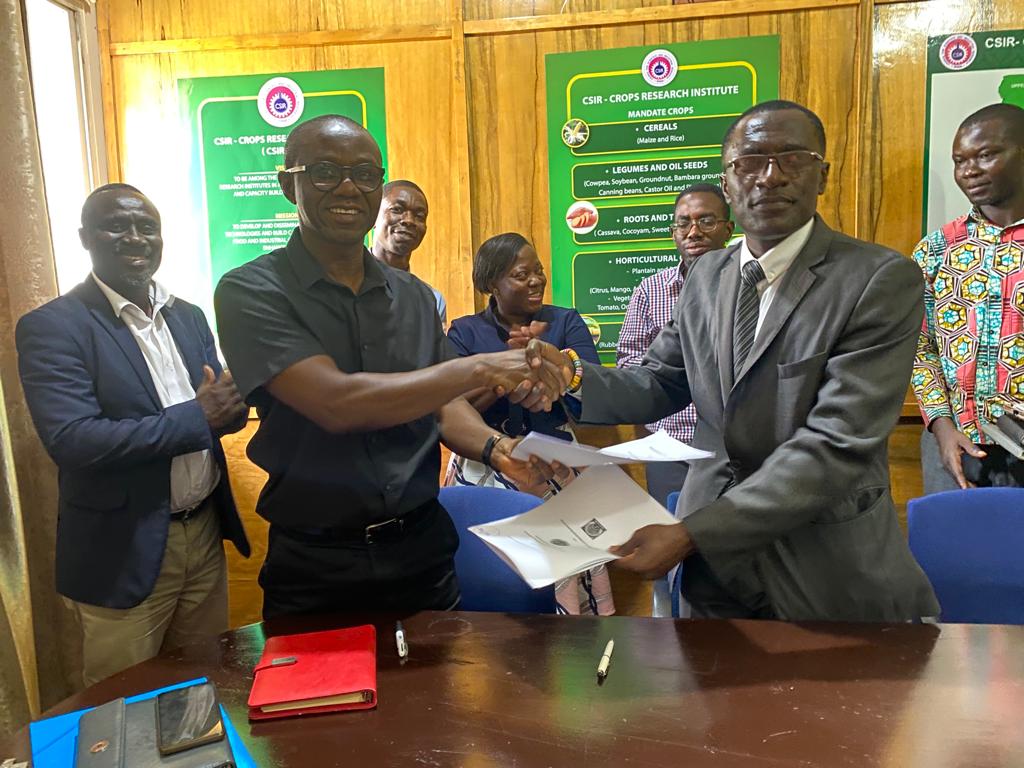
The Crops Research Institute (CRI) of the Council for Scientific and Industrial Research (CSIR) has signed agreements with a private sector cassava extension agency to improve the agronomy and utilization of cassava.
Dr. Maxwell Darko Asante, Deputy Director, CSIR-CRI, speaking at the signing ceremony between the CRI and the Ghana Cassava Center of Excellence at Fumesua, in the Ejisu Municipality in the Ashanti Region, said cassava was an important food crop whose potentials needed to be harnessed and the private sector’s involvement was key to achieving that goal.
He assured that the research institute would work to give the right human resources and technologies that would help increase cassava production and utilization in the country.“I am hopeful this collaboration will sustain and impact positively on cassava production for Ghana as a whole.I am also appealing for stronger partnerships with the CSIR-CRI to expand and deepen research activities” he stated.
Dr. Asante indicated that research was a key tool for quality and improved end products and said the CRI would continue to investigate and bring out new crop varieties that addressed the needs of the people.
Executive Director, Ghana Cassava Center of Excellence (GCCE),Mr. William Agyei-Manu, was optimistic that formalizing relationships with the research institution would propel it to be identified as one of the institution’s private sector wings and deliver on extension drives.
He believed the collaboration would also help promote the government’s agenda of exporting cassava starch.

With our role to disseminate extension information and connect research processes to services, the government’s agenda to export starch, we will do our best to promote for the private sector to invest.
But we need varieties that have very high starch content that will reduce cost of production and cost processing, this collaboration will help,” he observed.
Mr. Agyei-Manu mentioned that the GCCE was bringing on board the Circular Economy and Environmental Policy to promote green skills in the cassava industry.“It would take into consideration how to use the cash crop as alternative livestock feed, use cassava waste to generate crude starch, and cassava waste in processing mushrooms.“These circular economies processes have not been well exposed” he added.




